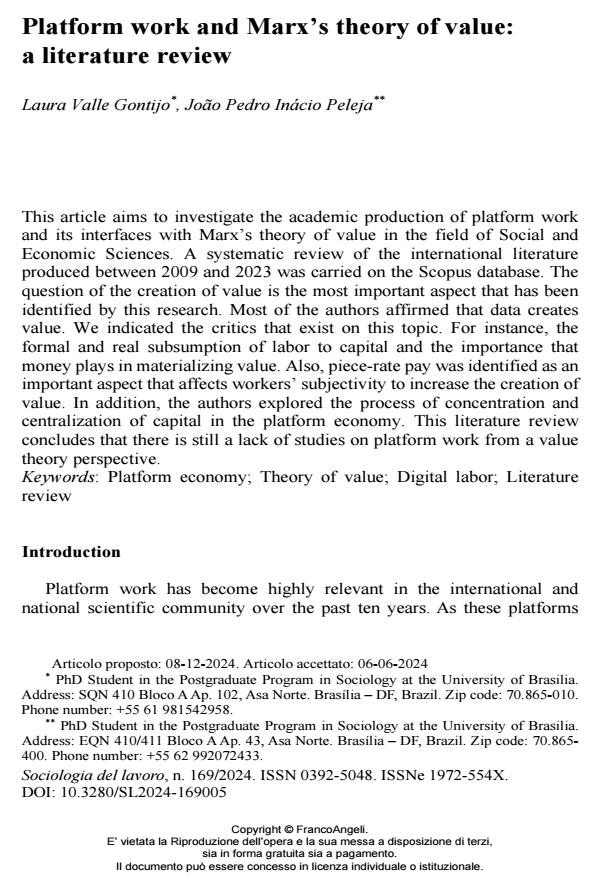Platform work and Marx’s theory of value: a literature review
Titolo Rivista SOCIOLOGIA DEL LAVORO
Autori/Curatori Laura Valle Gontijo, João Pedro Inácio Peleja
Anno di pubblicazione 2024 Fascicolo 2024/169
Lingua Italiano Numero pagine 15 P. 99-113 Dimensione file 205 KB
DOI 10.3280/SL2024-169005
Il DOI è il codice a barre della proprietà intellettuale: per saperne di più
clicca qui
Qui sotto puoi vedere in anteprima la prima pagina di questo articolo.
Se questo articolo ti interessa, lo puoi acquistare (e scaricare in formato pdf) seguendo le facili indicazioni per acquistare il download credit. Acquista Download Credits per scaricare questo Articolo in formato PDF

FrancoAngeli è membro della Publishers International Linking Association, Inc (PILA), associazione indipendente e non profit per facilitare (attraverso i servizi tecnologici implementati da CrossRef.org) l’accesso degli studiosi ai contenuti digitali nelle pubblicazioni professionali e scientifiche.
This article aims to investigate the academic production of platform work and its interfaces with Marx’s theory of value in the field of Social and Economic Sciences. A systematic review of the international literature produced between 2009 and 2023 was carried on the Scopus database. The question of the creation of value is the most important aspect that has been identified by this research. Most of the authors affirmed that data creates value. We indicated the critics that exist on this topic. For instance, the formal and real subsumption of labor to capital and the importance that money plays in materializing value. Also, piece-rate pay was identified as an important aspect that affects workers’ subjectivity to increase the creation of value. In addition, the authors explored the process of concentration and centralization of capital in the platform economy. This literature review concludes that there is still a lack of studies on platform work from a value theory perspective.
Parole chiave:economia di piattaforma; teoria del valore; lavoro digitale; rassegna della letteratura.
Laura Valle Gontijo, João Pedro Inácio Peleja, Platform work and Marx’s theory of value: a literature review in "SOCIOLOGIA DEL LAVORO " 169/2024, pp 99-113, DOI: 10.3280/SL2024-169005